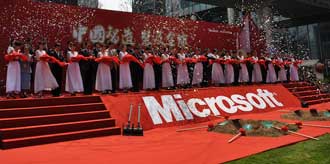 Having escaped Intel’s clutches, security outfit McAfee is looking to its channel to provide it with a way forward.
Having escaped Intel’s clutches, security outfit McAfee is looking to its channel to provide it with a way forward.
Intel bought McAfee for $7.7 billion back in 2010 and announced last September that it had agreed to sell its stake to TPG Capital for $4.2 billion. Thoma Bravo has also become an investor through an agreement with TPG and former Intel Security general manager Christopher Young has been named McAfee CEO.
McAfee is sticking with a current partner programme that runs through until 2018 along with its existing product plans.
But the outfit is claiming that the “new” McAfee will be reacting differently to threats and creating more opportunity for its channel partners.
The firm has a well-established and loyal channel and a brand that is already well known by partners and customers.
Young indicated what could lie ahead saying that as a standalone company with a clear purpose, McAfee gains the agility to unite people, technology and organisations against our common adversaries and ensure our technology-driven future is safe.



















